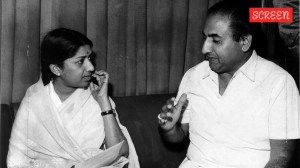Military Digest: Pakistan Army Chief Asim Munir’s thirst for military recognition mirrors that of dictators from the past
Idi Amin of Uganda, Saddam Hussein of Iraq, and Ayub Khan of Pakistan are notable examples of men who awarded themselves military distinctions.
 After the attack on JeM headquarters in Bahawalpur, Army Chief Asim Munir issued direct orders from GHQ Rawalpindi to the Corps Commander (Bahawalpur) and soldiers to attend the funeral of those killed in the attack, said JeM commander Ilyas Kashmiri.
After the attack on JeM headquarters in Bahawalpur, Army Chief Asim Munir issued direct orders from GHQ Rawalpindi to the Corps Commander (Bahawalpur) and soldiers to attend the funeral of those killed in the attack, said JeM commander Ilyas Kashmiri. Pakistan Army Chief Field Marshal Asim Munir has been in the news recently after having been awarded the second-highest military gallantry honour of Pakistan, Hilal-e-Jurat. That puts him in the pantheon of many dictators from the past, including Field Marshal Ayub Khan, Field Marshal Idi Amin and Saddam Hussein, who had not been shy of awarding themselves top medals and ranks.
While such medals are awarded in the name of the President of a country, the citations for the same originate from military headquarters. For a gallantry medal to be awarded to a soldier who has been in action against the enemy, the citation must be vetted by the chain of command, which usually begins with the commanding officer.
Here, the Chief of Army Staff has been awarded a medal that is given for gallantry in battle, and the Army Chief has no commanding officer above him. Hence, the medal is a gift from Asim Munir to himself, just as the rank of Field Marshal was. On May 20, Asim Munir was promoted to Field Marshal in the Army.
Several military dictators throughout history have awarded themselves gallantry awards or other high honours, often as a means of self-aggrandisement or to bolster their image as heroic leaders. Prominent among them is Idi Amin, the dictator of Uganda, who declared himself a Field Marshal in 1975 and awarded himself numerous self-created military decorations, including the Victorious Cross (a fabricated award mimicking the British Victoria Cross).
He also claimed titles like “Conqueror of the British Empire” to enhance his image, despite lacking any significant military achievements to justify such honours.
Former Pakistani military dictator, Mohammad Ayub Khan, who ruled the country from 1958 to 1969, appointed himself the rank of Field Marshal in 1959, a year after seizing power through a military coup. Like Asim Munir, Ayub Khan also ensured that he was awarded the Hilal-i-Jurat in the late 1950s, after its institution, for his “bravery” in 1949 against the Indian Army.
Iraqi dictator Saddam Hussein also frequently awarded himself military honours and titles, including the rank of Field Marshal and the highest award of the Order of the Two Rivers, named after the Tigris and Euphrates rivers, to project an image of a valiant leader. These awards were often tied to his propaganda efforts during conflicts like the Iran-Iraq War, despite his role being more strategic than directly combative.
There are several other examples in history of leaders having awarded themselves grand titles and awards, and these include Joseph Stalin of the USSR, Nicolae Ceaușescu of Romania, Kim Jong-il and his son Kim Jong-un of North Korea and Francisco Franco of Spain.
Most of these dictators used awards to legitimise their rule, enhance their public image, or create a cult of personality. Gallantry awards, typically reserved for acts of bravery in combat, were often misused by these leaders to symbolise their leadership or fabricated heroism.
In his seminal work On The Psychology of Military Incompetence, British psychologist Norman Dixon pens a picture that gives an insight into the personality of those like Asim Munir. “……the man who reaches a position of high command out of a compulsive thirst for personal advancement will tend to lack that creative talent and flexibility of mind so necessary in modern warfare,” Dixon writes.







